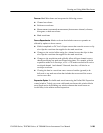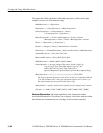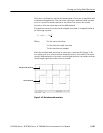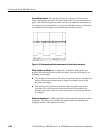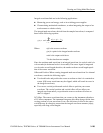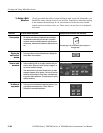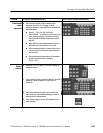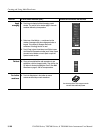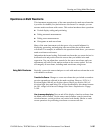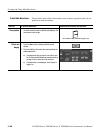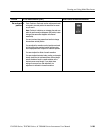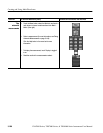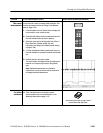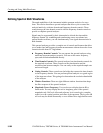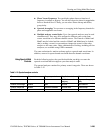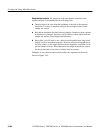
Creating and Using Math Waveforms
CSA7000 Series, TDS7000 Series, & TDS6000 Series Instruments User Manual
3- 197
Operations on Math Waveforms
This instrument supports many of the same operations for math waveforms that
it provides for channel (live) and reference waveforms. For example, you can
measure math waveforms with cursors. This section introduces these operations.
H Vertical display scaling and positioning
H Taking automatic measurements
H Taking cursor measurements
H Histograms on math waveforms
Many of the same instrument tools that prove to be powerful adjuncts for
displaying, processing, and analyzing other waveforms also work on math
waveforms. For example, in addition to the operations listed above, you can save
math waveforms as references.
Independent horizontal scaling. Each math waveform that you create derives its
horizontal scale and position from the sources that you include in its math
expression. You can adjust these controls for the source waveforms, and your
adjustments will reflect in the math waveform as the sources update. You can
also magnify all waveforms, including math waveforms, using zoom.
Basically, you use the same techniques to work with math waveforms that work
with channel waveforms.
Consider the Source. Changes to source waveforms that you include as math-ex-
pression operands are reflected in the math waveform. However , if Ch1 is 4
divisions high at 100 mV per division, then at 50 mV per division Ch1 is 8
divisions high. Any math using Ch1 will not be af fected by this change because
the Ch1 voltage levels have not changed. See Source Dependencies on page
3--189.
How to manage displaying. T urn on and of f the display of math waveforms from
the Math control window. Use the same control-window controls (waveform
selection buttons, vertical position, and vertical scale knobs). Mouse or touch
screen operations for positioning waveforms on screen work also.
Using Math Waveforms



